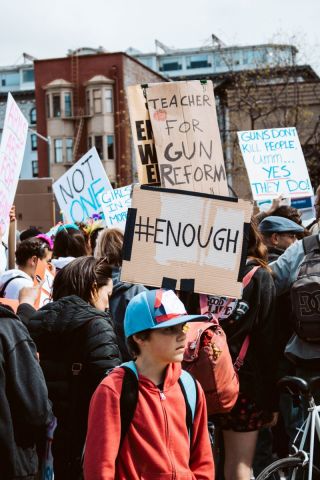Mass Shootings
We Need to Do Better Removing Weapons From Those in Crisis
“Red flag” laws are only a start to adequate protection.
Posted November 14, 2023 Reviewed by Ray Parker
Key points
- The mass shooting in Maine sparks debate on gun access and mental health support.
- Prevent tragedies like Maine's with red flag laws, empowering law enforcement to disarm potential threats.
- With 61% of Americans favoring stricter gun laws, let's strengthen enforcement and enact tougher measures.

On October 25, Lewiston, Maine, experienced the deadliest mass shooting of this past year, leaving 18 individuals dead and 13 injured, and the whole Southern part of the state impacted as authorities carried out a frantic search to find the gunman, which concluded two days later with the shooter’s suicide.
Since that time, representatives and members of the public have questioned why the shooter had access to weapons, considering he had a long history of acute mental illness and a potential for violence.
The federal policy director at the gun violence prevention group Brady went so far as to say, “This guy did everything short of taking out a front-page ad in the newspaper saying he was going to commit an atrocity.”
Among the issues raised is that Maine doesn’t have the most stringent “red flag” laws, enacted by 22 other U.S. states, which allow law enforcement to remove weapons from those who are found to be a danger to themselves or others. Instead, its “yellow flag” laws make it more challenging to remove such weapons, requiring more professionals to approve the order.
But more awareness of red flag laws is needed to ensure they work as well as they should.
As a New York-based mental health attorney, I provide counsel to families whose loved ones have mental health challenges, recommending a variety of appropriate legal and follow-up actions from a comprehensive “tool kit.” One recent case involved an individual in crisis, who we believed to be a danger to himself and others and was strongly suspected of having weapons.
We petitioned for an extreme risk protection order (ERPO), the name of New York State’s “red flag” law, to have the individual’s potential weapons temporarily removed and successfully obtained an order from a judge.
We coordinated closely with the local police department, and after working through some challenges, the search for weapons was completed. We subsequently learned it was the first ERPO petition filed in their jurisdiction by a private citizen rather than a law enforcement agency, even though the law has been on the books since 2019.
The more law enforcement, attorneys in this field, families, and the public learn about this law, the more it will be utilized for everyone’s safety. The New York State ERPO law and other red flag laws allow everyday citizens to petition the courts for these protective orders specifically to help prevent tragedies like the one in Maine.
Law enforcement in New York and nationwide must receive training about the specifics regarding their particular yellow or red flag laws and act as willing partners to those trying to use them appropriately out of concern for their loved ones and the general public. Without such education and cooperation, much of the value of these protections is lost even in states with the strongest oversight of guns and other weapons.
Data from the Pew Research Center posted as recently as September 2023 indicate that 61 percent of Americans say it is too easy to obtain a gun in the U.S. legally. If this majority joins forces, we should be able to significantly strengthen gun control measures and improve the ability to enforce those already on the books.


